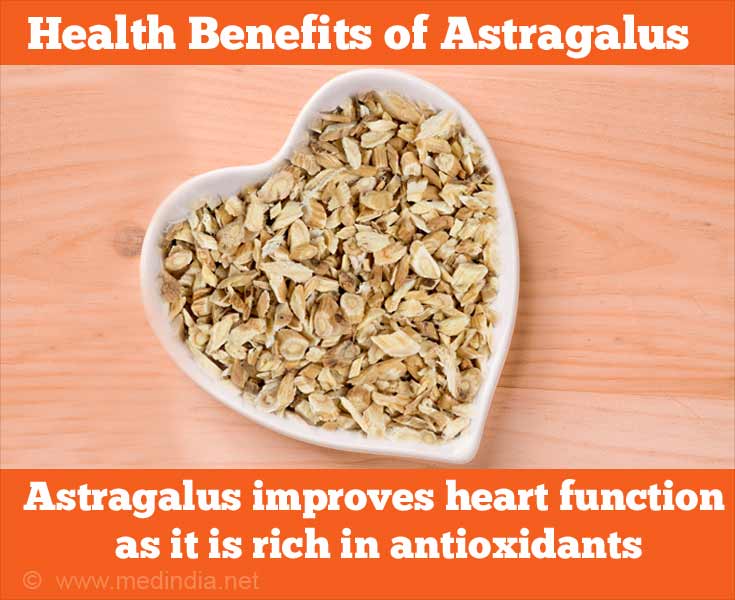- Astragalus membranaceus Extract Activates Immune Response in Macrophages via Heparanase - (https://www.ncbi.nlm.nih.gov/pmc/articles/PMC6268577/)
- Immune system effects of echinacea, ginseng, and astragalus: a review - (https://www.ncbi.nlm.nih.gov/m/pubmed/15035888/)
- Astragalus membranaceus: A Review of its Protection Against Inflammation and Gastrointestinal Cancers - (https://www.ncbi.nlm.nih.gov/m/pubmed/26916911/)
- Astragalus in the Prevention of Upper Respiratory Tract Infection in Children with Nephrotic Syndrome: Evidence-Based Clinical Practice - (https://www.ncbi.nlm.nih.gov/pmc/articles/PMC3638577/)
- Vascular protective effects of Astragalus membranaceus and its main constituents in rats with chronic hyperhomocysteinemia - (https://www.ncbi.nlm.nih.gov/pmc/articles/PMC5609140/ )
- Recent Advances in Astragalus membranaceus Anti-Diabetic Research: Pharmacological Effects of Its Phytochemical Constituents - (https://www.ncbi.nlm.nih.gov/pmc/articles/PMC3855992/)
- Astragalus membranaceus augment sperm parameters in male mice associated with CAMP-responsive element modulator and activator of CREM in testis - (https://www.ncbi.nlm.nih.gov/pmc/articles/PMC4936768/)
- Astragalus membranaceus stimulates human sperm motility in vitro - (https://www.ncbi.nlm.nih.gov/m/pubmed/1471613/)
- Astragalus Polysaccharides Lowers Plasma Cholesterol through Mechanisms Distinct from Statins - (https://www.ncbi.nlm.nih.gov/pmc/articles/PMC3217967/ )
- Anti-Aging Implications of Astragalus Membranaceus (Huangqi): A Well-Known Chinese Tonic - (https://www.ncbi.nlm.nih.gov/pmc/articles/PMC5758356/)
- Astragalus - (https://nccih.nih.gov/health/astragalus#hed4)
What is Astragalus?
Astragalus, a traditional Chinese medicinal herb, has many purported health benefits. It is a plant in the legume family, which is also known as milkvetch or huang qi.
There are more than 2000 species of astragalus available in nature, yet only two are used in the supplements - Astragalus membranaceus and Astragalus mongholicus.
The root of this plant is available in the market in the form of teas, powders, capsules and liquid extracts. The active plant compounds present in the root are responsible for its potential health benefits.
Health Benefits of Astragalus
Let's take a look at how astragalus is beneficial for human health:
Boosts Immune System
Astragalus possesses immune-boosting properties, indicates research. This herb has the ability to activate macrophages, immune cells that engulf the bacteria or damage-causing foreign particles. It further prevents illnesses by increasing the body's resistance to infections. The presence of natural antioxidants in this herb, scavenge the free radicals and protect the body against oxidative damage. Hence, astragalus increases the migration and releases immune response mediators and strengthens the overall immune system.
Supports Heart Health
Astragalus protects the heart via the following mechanisms:
- Studies have found that flavonoids present in astragalus help in the widening of the arteries and lower blood pressure. Thus, it protects the heart by lowering high blood pressure, which is a crucial risk factor.
- Besides this, flavonoids present in this herb boost the supply of oxygen and nutrient-rich blood towards the heart, which prevents death of cardiac tissues.
- Moreover, high blood cholesterol levels is an important risk factor for heart diseases. Astragalus flavonoids reduce the level of blood LDL cholesterol and also prevent the formation of clots in the arteries.
Thus, intake of astragalus supplements can be beneficial for individuals with heart diseases.

Prevents Respiratory Infections
Evidence indicates that astragalus or its formulations can prevent upper respiratory tract infections in immunocompromised patients. Numerous studies have found an inhibitory effect of astragalus on viruses and bacteria that cause upper respiratory tract infections, these include:
- Coxsackievirus
- Influenza virus
- Pneumococcus
- Staphylococcus aures
Compounds in astragalus increase the activity of immune cells and boost antibody production. This helps in getting rid of viruses and bacteria that cause respiratory infections.
Improves Blood Lipid Profile
Having an altered lipid profile increases the risk of heart diseases and stroke. Polysaccharides present in astragalus help in lowering the blood cholesterol levels via the following mechanisms:
- Polysaccharides reduce the intestinal absorption of cholesterol and increase its excretion.
- These polysaccharides bind to the bile acids and throw them out of the body. Bile acids are required for the digestion of fat in the body and cholesterol is required for the formation of bile acids. Now, as these polysaccharides cause the removal of bile acids, the body uses cholesterol to produce more bile acids. In this way, cholesterol is used rather than being present in the blood.
- It further reduces the activity of enzymes required for the synthesis of cholesterol.
Hence, astragalus is a promising natural health hypolipidemic drug.
Anti-Diabetic Potential
Astragalus roots have a long history for the treatment of diabetes-related symptoms in China. One interesting study found that astragalus decoction reduced blood fasting glucose levels and improved insulin sensitivity.
Astragalus polysaccharides promote entry of glucose into the cells. Hence, glucose is used as a source of energy for the body rather than being present in the blood. It increases the expression of glucose transporters in the muscles and tissues, which allows glucose to enter into the cells. It further makes the cells more sensitive to insulin and reduces insulin resistance. Hence, drinking astragalus tea may help in the management of diabetes mellitus.

Improves Male Reproductive Health
Astragalus improves male fertility by stimulating sperm motility in males. It enhances the production of mature sperm and improves sperm count too. Such an effect of astragalus is attributed to the presence of flavonoids and other active compounds in it. Studies have not observed any toxic or negative effects of astragalus on male health.
Possible Side Effects and Cautions of Astragalus
Astragalus is usually safe for many adults. However, some side-effects that have been reported when astragalus is taken orally are diarrhea, rashes, itchy skin and gastrointestinal pain and discomfort. When given by IV (intravenous) route, this Chinese herb may cause irregular heartbeat and dizziness.
Some astragalus species can be toxic as they contain the neurotoxin swainsonine and have caused locoweed poisoning, whereas, some other species contain toxic levels of selenium.
Who Should Not Take Astragalus?
Though astragalus is beneficial for overall health, the following people should avoid it:
Pregnant Women and Breastfeeding Mothers
Currently, there is not much research about the safety of astragalus in pregnant and lactating women. Hence, to be on a safer side, it is better to avoid it.
Individuals who are on Immunosuppressant Drugs
Astragalus boosts the activity of the immune system, and can decrease the effectiveness of immunosuppressant drugs.
Astragalus may also have an effect on your blood pressure and blood glucose levels. Ask your healthcare provider before starting this natural herb.
How To Consume Astragalus?
Here's how you can incorporate astragalus into your diet:
- Drink a cup of astragalus tea
- Add astragalus powder to a bowl of soup
- Make a cup of astragalus decoction
- You can even take it in the form of capsules
Drugs Interact with Astragalus
Autoimmune Disease Medications
If you are on any medication for autoimmune disease, do not go for astragalus supplements. Astragalus stimulates the immune system, which can interfere with the medications, leading to medical issues.
Lithium
Astragalus should not be taken if you are on medications containing lithium. Astragalus can make it difficult for your body to process lithium and this may lead to the buildup of lithium in your body.
Astragalus has a number of health benefits such as improving your immune system and symptoms of chronic fatigue. It can also help people with certain chronic diseases related to the heart, and kidney. However, before taking in astragalus as a supplement, consult with your healthcare provider.






